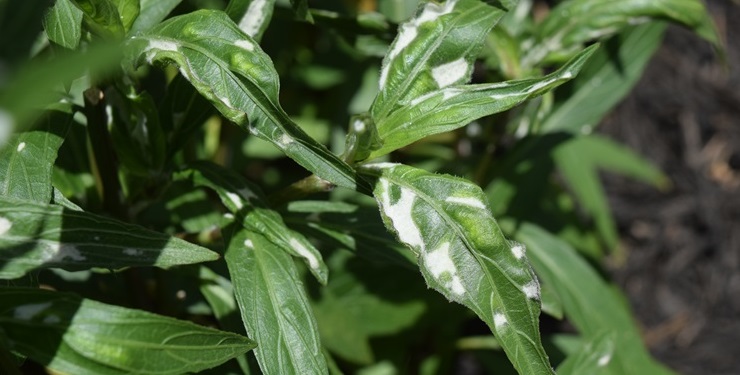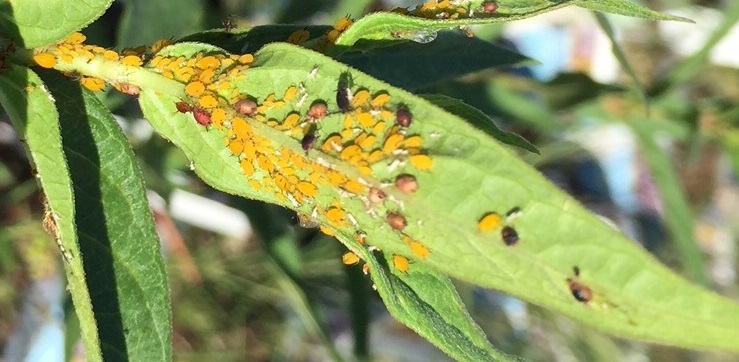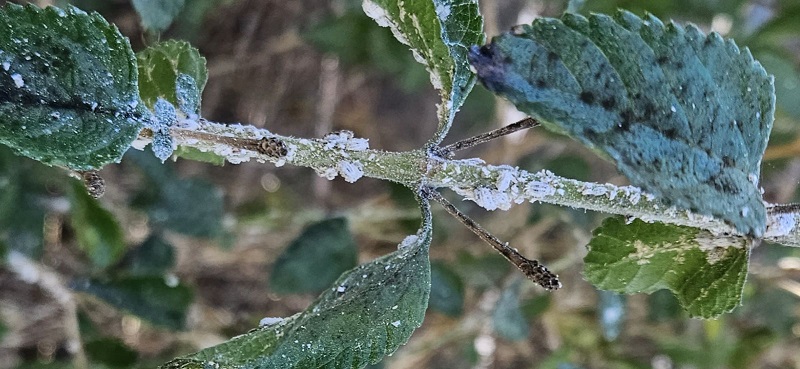We now have available to us a wide range of oil products to use as alternatives to synthetic insecticides and fungicides. These include oils distilled from petroleum and oils extracted from plants and animals.
Petroleum oils (including mineral oils) are highly refined, paraffinic oils that are often referred to as horticultural spray, summer oil, spray oil or white mineral oil. We recommend Bonide “All Seasons Spray Oil” for late winter insect and disease control. (The antiquated term “dormant oil” referred to the heavier, less refined oils produced in the past which could only be used on plants during dormancy.)
Plant oils, such as those extracted from the Neem tree, Azadirachta indica, are also widely used as organic pesticides. Some neem oil products also contain an additional active ingredient, Azadirachtin. Neem is considered an insect anti-feeding agent and insect growth regulator. When neem oil contains sulfur compounds, it possesses additional fungicidal activity compared to petroleum oils.
All oil-based products have the same mode of action. I always prefer using an oil product versus a chemical pesticide, as it kills the pest via physical means versus chemical means. It suffocates the insect! Oils also kill insects by disrupting their feeding on oil-covered surfaces. When used against pathogens such as fungi, the oil may smother fungal growth and reduce spore germination on treated surfaces. When used according to directions, the oil can be very effective at controlling many insects and diseases.
Apply oils when temperatures are between 45-85°F. Applications during the summer are best made in the early morning or evening. Because fast-drying conditions are desired to lessen the effects of phytotoxicity, humidity should be below 50%. Some plants may exhibit symptoms of phytotoxic injury if sprayed when the temperature is hot and the plant is stressed, so spraying of stressed plants should be avoided. Thorough coverage is VERY important, and spray should cover the undersides of leaves as well as every nook and cranny! In addition, check the product label to determine which plants may be sensitive to oil sprays.
Oils may be applied at higher rates during the winter, when plants are dormant, and should always be sprayed before the buds begin to swell in the spring. A mid-winter (Jan-Feb) spray on dormant fruit trees will help control many overwintering pests. A February spray on Italian Cypress will aid in controlling spider mites, which are a common pest on this species. Read more about controlling spider mites on Italian Cypress HERE.
Oils are low in toxicity, and because they are active for only a short time, they do not affect beneficial insects unless they are exposed to the direct spray. Oils are also one of the few classes of pesticides to which insects and mites have not developed resistance. Used under ideal conditions, with the spray tank agitated regularly to keep oil mixed with water, horticultural oils will control the following insects and diseases:
- Scale Insects- crawlers, eggs, and adults
- Citrus Scale
- Spider Mites
- Aphids- adults and eggs
- Powdery Mildew
- Bud Moth
- Mealy Bugs
- Lace Bug
- Whitefly
- Thrips
- Alternaria Leaf Spot
- Blackspot on Roses
- Leaf Rollers
- Beetle Larvae
- Rust
- Botrytis
- Pear Psylla




